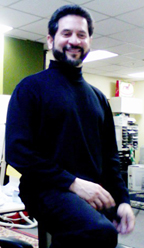NOTE FROM THE EDITOR:
Dear readers, I found this great article, previously published by Zero Hedge, on one of the most secretive banks: the Bank of the International Settlements. This is the bank that is above all banks, top of the top of the world controllers. Higher than all world Central Banks. Super interesting! THIS IS PART ONE OF SERIES.
Nothing comes closer to the stereotypical, secretive group determining the fate of over 7 billion people, than the Bank of International Settlements
by zero hedge
Over the centuries there have been many stories, some based on loose facts, others based on hearsay, conjecture, speculation and outright lies, about groups of people who “control the world.” Some of these are partially accurate, others are wildly hyperbolic, but when it comes to the historic record, nothing comes closer to the stereotypical, secretive group determining the fate of over 7 billion people, than the Bank of International Settlements, which hides in such plain sight, that few have ever paid much attention.
The following is an excerpt from TOWER OF BASEL: The Shadowy History of the Secret Bank that Runs the World by Adam LeBor. Reprinted with permission from PublicAffairs.
The world’s most exclusive club has 18 members. They gather every other month on a Sunday evening at 7 p.m. in conference room E in a circular tower block whose tinted windows overlook the central Basel railway station. Their discussion lasts for one hour, perhaps an hour and a half. Some of those present bring a colleague with them, but the aides rarely speak during this most confidential of conclaves. The meeting closes, the aides leave, and those remaining retire for dinner in the dining room on the eighteenth floor, rightly confident that the food and the wine will be superb. The meal, which continues until 11 p.m. or midnight, is where the real work is done. The protocol and hospitality, honed for more than eight decades, are faultless. Anything said at the dining table, it is understood, is not to be repeated elsewhere.
Few, if any, of those enjoying their haute cuisine and grand cru wines— some of the best Switzerland can offer—would be recognized by passers-by, but they include a good number of the most powerful people in the world. These men—they are almost all men—are central bankers. They have come to Basel to attend the Economic Consultative Committee (ECC) of the Bank for International Settlements (BIS), which is the bank for central banks. Its current members [ZH: as of 2013] include Ben Bernanke, the chairman of the US Federal Reserve; Sir Mervyn King, the governor of the Bank of England; Mario Draghi, of the European Central Bank; Zhou Xiaochuan of the Bank of China; and the central bank governors of Germany, France, Italy, Sweden, Canada, India, and Brazil. Jaime Caruana, a former governor of the Bank of Spain, the BIS’s general manager, joins them.
In early 2013, when this book went to press, King, who is due to step down as governor of the Bank of England in June 2013, chaired the ECC. The ECC, which used to be known as the G-10 governors’ meeting, is the most influential of the BIS’s numerous gatherings, open only to a small, select group of central bankers from advanced economies. The ECC makes recommendations on the membership and organization of the three BIS committees that deal with the global financial system, payments systems, and international markets. The committee also prepares proposals for the Global Economy Meeting and guides its agenda.
That meeting starts at 9:30 a.m. on Monday morning, in room B and lasts for three hours. There King presides over the central bank governors of the thirty countries judged the most important to the global economy. In addition to those who were present at the Sunday evening dinner, Monday’s meeting will include representatives from, for example, Indonesia, Poland, South Africa, Spain, and Turkey. Governors from fifteen smaller countries, such as Hungary, Israel, and New Zealand are allowed to sit in as observers, but do not usually speak. Governors from the third tier of member banks, such as Macedonia and Slovakia, are not allowed to attend. Instead they must forage for scraps of information at coffee and meal breaks.
The governors of all sixty BIS member banks then enjoy a buffet lunch in the eighteenth-floor dining room. Designed by Herzog & de Meuron, the Swiss architectural firm which built the “Bird’s Nest” Stadium for the Beijing Olympics, the dining room has white walls, a black ceiling and spectacular views over three countries: Switzerland, France, and Germany. At 2 p.m. the central bankers and their aides return to room B for the governors’ meeting to discuss matters of interest, until the gathering ends at 5.
King takes a very different approach than his predecessor, Jean-Claude Trichet, the former president of the European Central Bank, in chairing the Global Economy Meeting. Trichet, according to one former central banker, was notably Gallic in his style: a stickler for protocol who called the central bankers to speak in order of importance, starting with the governors of the Federal Reserve, the Bank of England, and the Bundesbank, and then progressing down the hierarchy. King, in contrast, adopts a more thematic and egalitarian approach: throwing open the meetings for discussion and inviting contributions from all present.



